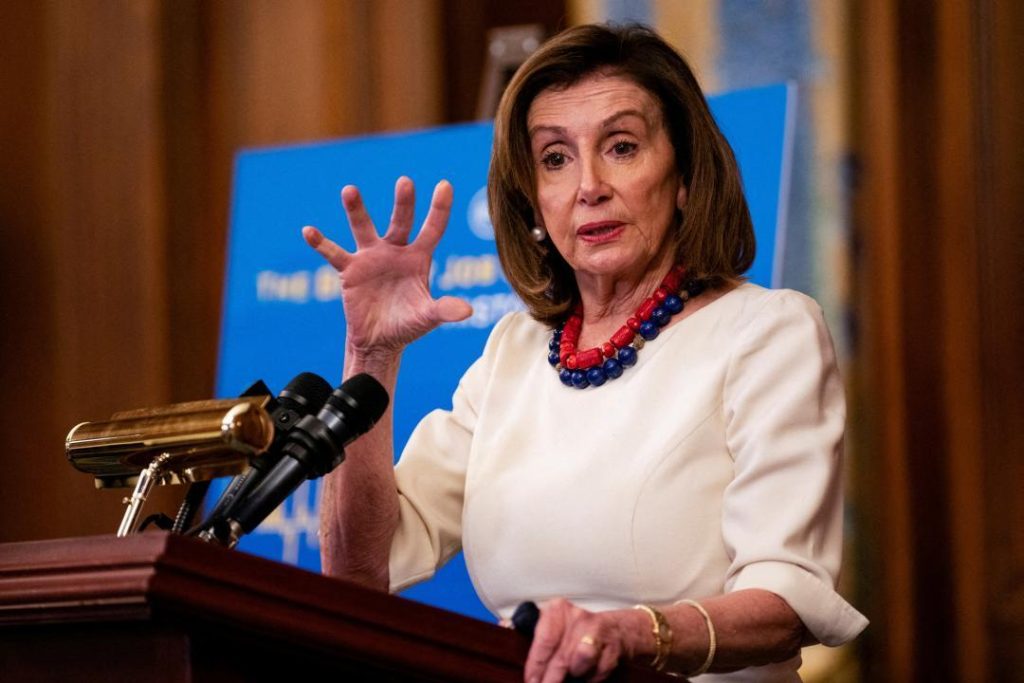
What is PELOSI Act & why is it named after former US Speaker Nancy Pelosi?
In a bid to curb potential conflicts of interest among lawmakers, US Senator Josh Hawley has reintroduced the Preventing Elected Leaders from Owning Securities and Investments (PELOSI) Act. The bill seeks to prohibit elected officials and their spouses from holding or dealing in individual stocks while holding office. However, lawmakers would still be allowed to invest in mutual funds, exchange-traded funds (ETFs), and Treasury bonds.
The PELOSI Act is named after former US Speaker Nancy Pelosi, who has been accused of enjoying significant stock market gains during her tenure as Speaker of the House. The act is an attempt to address concerns about lawmakers using their position to influence policy for personal financial gain.
The PELOSI Act is not a new concept, as it was first introduced in 2012 by then-Senator Tom Coburn. However, it has gained renewed attention in recent years following a series of scandals involving lawmakers and their financial dealings.
One of the most notable examples is that of Nancy Pelosi, who has been accused of benefiting from the COVID-19 pandemic. During the pandemic, Pelosi’s husband, Paul Pelosi, made significant gains from his investments in technology and healthcare stocks. The couple’s net worth increased by over $30 million during the pandemic, sparking accusations of insider trading.
The PELOSI Act aims to prevent similar situations in the future by prohibiting lawmakers and their spouses from owning individual stocks. Instead, they would be allowed to invest in more diversified and less risky investments like mutual funds, ETFs, and Treasury bonds.
The bill also includes provisions to ensure that lawmakers’ financial transactions are transparent and publicly disclosed. This would help to prevent conflicts of interest and maintain trust in the political system.
The PELOSI Act has received support from both Democrats and Republicans, with Senator Hawley stating that the bill is “common-sense legislation” that would “restore trust in our government.”
However, some critics have argued that the bill goes too far and would restrict lawmakers’ ability to invest in the stock market. They argue that the bill would disproportionately affect smaller investors and those who rely on the stock market for their retirement savings.
In response to these concerns, Senator Hawley has stated that the bill would not prohibit lawmakers from investing in the stock market entirely. Instead, it would simply prohibit them from owning individual stocks and would allow them to invest in more diversified and less risky investments.
The PELOSI Act is just one of several bills aimed at addressing conflicts of interest among lawmakers. Other bills, such as the Stop Corporations from Owning Governments Act (SCOG), seek to prohibit corporations from making political donations and to ban lawmakers from accepting gifts from corporate executives.
While the PELOSI Act has received bipartisan support, it is still unclear whether the bill will become law. The bill would need to pass both the Senate and the House of Representatives and be signed into law by the President.
In conclusion, the PELOSI Act is an important step towards addressing conflicts of interest among lawmakers and restoring trust in the political system. By prohibiting lawmakers and their spouses from owning individual stocks and allowing them to invest in more diversified and less risky investments, the bill aims to prevent situations like those involving Nancy Pelosi and her husband.
As the bill moves forward, it is important to consider the potential impact on small investors and those who rely on the stock market for their retirement savings. However, with renewed attention on the issue of conflicts of interest, the PELOSI Act has the potential to make a significant difference in the way lawmakers conduct themselves.



